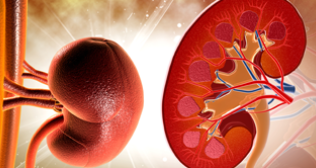
Dos and Don’ts for Kidney Transplant Patients
Kidney transplantation is the best possible treatment for End stage renal disease. A post–kidney transplant recipient can lead a regular normal life provided he/she will follow certain rules. Here are certain dos and don’ts which a recipient should follow for good health and a healthy graft kidney.
Dos:
1. Regular follow-up with your nephrologist as advised. Always follow up with the same doctor as far as possible. During the initial days, you may have to visit the doctor twice a week and the frequency of visits will reduce over a period of time. Always consult before taking any other medications or changing the dose of medications
2. Maintain good hygiene of the genital area. Urine infections are very common post-transplant and can affect the graft kidney
3. Do routine blood check-ups minimum of thrice monthly. Any signs of rejection/ infection can be picked up on blood reports
4. Regularly monitor blood pressure and blood sugar. Post-transplant recipients can develop new-onset diabetes mellitus. Hence regular monitoring of sugar and avoiding excessive carbohydrates and junk food is of prime importance
5. Drink minimum 3 liters of water daily. Avoid dehydration. Drink purified/boiled water as far as possible
6. Take immunosuppressive drugs (tacrolimus, MMF, steroids) at a fixed time (usually 10 am-10 pm). There should be a 2-hour gap between food intake and medications for proper absorption of medications
7. Wear a surgical mask while going out. Avoid crowded places. Isolate yourself if any family member develops fever, cold, or cough till their symptoms subside
8. Regular exercise for 30 to 45 minutes a day is always beneficial
9. As far as possible, try eating freshly cooked home food. Wash fruits and vegetables if eating salads. Consume food rich in fruits, vegetables, fiber, whole grains, lean meats, poultry, and fish. Reduce the salt intake, reduce fatty foods and high carbohydrate diet
10. Rest adequately for the first 3 months after surgery. Resume your job three months after the transplantation surgery if the clinical status is stable.
Don’ts:
1. Never miss doses of immunosuppressive medications (tacrolimus, MMF, and steroids). Missing doses can trigger rejection episodes
2. Never change the brand of medications. Different brands of the same medicine have different bioavailability and can cause low levels of these medicines in the body
3. Do not lift heavy weights or do weight training for at least one month after kidney transplantation surgery
4. Do not consume over-the-counter medications like painkillers and antibiotics. Many antibiotics and antifungals have interactions with transplant medications and can alter their levels. Avoid NSAIDs (pain killers) and other nephrotoxic medications (medicines that can damage the kidneys). Always consult a nephrologist before taking any new medicine
5. Do not consume outside food, especially meat. Avoid eating food from outside or getting food parcels from outside and consuming it
6. Do not hold urine for excessive time. Avoid using public toilets. Any of these things can trigger urine infection and can affect graft kidney
Categories
Clear allMeet the doctor

- Nephrology | Nephrology
-
15 Years
-
1200



















